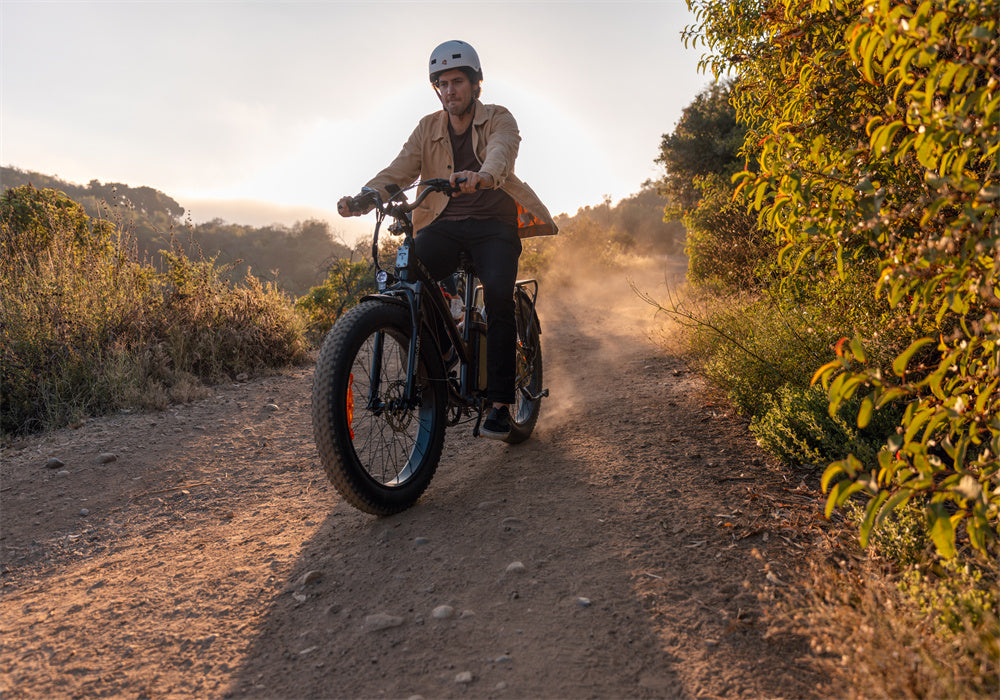Increasing popularity and convenience of electric bikes as a mode of transportation. However, along with the surge in e-bike usage comes the question of their legality on the streets.
Electric Bike Regulations
Knowing the laws of electric bikes is crucial, as regulations vary depending on your location. In the United States, for instance, federal regulations classify e-bikes as bicycles if they meet certain criteria. However, individual states and municipalities may have their own laws regarding e-bike usage, including speed limits, age restrictions, and where they can be ridden.
Federal Classification of Electric Bikes:
According to federal regulations in the United States, electric bikes are classified based on their maximum assisted speed and the power of their motor. Here are the three main categories:
Class 1: These e-bikes are equipped with a motor that provides assistance only when the rider is pedaling, and the motor stops providing assistance when the bike reaches 20 miles per hour (mph).
Class 2: Similar to Class 1 e-bikes, Class 2 ebikes also have a maximum assisted speed of 20 mph, but they are equipped with a throttle that can propel the bike without pedaling.
Class 3: These e-bikes have a maximum assisted speed of 28 mph and are equipped with a speedometer. Like Class 1 e-bikes, the motor only provides assistance when the rider is pedaling.

State and Local Regulations
While federal regulations provide a framework for classifying e-bikes, it's essential to familiarize yourself with the specific laws in your state and locality. Some states may have adopted the federal classifications, while others may have their own definitions and regulations for e-bikes.
Common Regulations Regarding E-Bikes
Here are some common regulations you may encounter regarding the use of electric bikes:
- Helmet Laws:Many states have helmet laws that require e-bike riders to wear helmets, especially for riders under a certain age.
- Age Restrictions: Some states impose age restrictions on who can operate electric bikes, particularly Class 3 models.
- Bike Lane Usage: In many areas, e-bikes are permitted to use bike lanes, but this can vary depending on local regulations.
- Speed Limits: Certain states may have speed limits for e-bikes, restricting them to lower speeds than the federal classifications.
- Licensing and Registration: While e-bikes typically do not require licensing or registration, some states may have specific requirements, especially for Class 3 models.

Before Purchasing an Electric Bike, What Should I Know?
Before purchasing an electric bike, there are several factors to consider to ensure that you're making the right choice for your needs and preferences:
Legal Requirements: Familiarize yourself with the regulations governing e-bikes in your area, including classification, speed limits, and any licensing or registration requirements.
Types of E-Bikes: Electric bikes come in various types, including commuter bikes, mountain bikes, and folding bikes. Consider your intended use and riding preferences when choosing the right type of e-bike for you.
Battery Life and Range: Evaluate the battery life and range of different e-bike models to ensure that they meet your needs for daily commuting or recreational riding.
Motor Power: Pay attention to the power and performance of the electric motor, as it will impact the bike's speed and ability to climb hills.
Comfort and Fit: Test ride different e-bike models to find one that offers a comfortable riding position and fits your body size and shape.
Maintenance and Warranty: Consider the maintenance requirements of the e-bike, as well as the availability of replacement parts and warranty coverage.

What Should You do, If an E-Bike Accident Occurs
Bike accidents can have different outcomes. In minor accidents, you might get scrapes or bruises, like in a regular bike accident. But because e-bikes can go faster, injuries might be a bit worse. After an e-bike accident, it's important to see a doctor right away. Even if you feel okay, some injuries might show up later.
Even though you're riding in public places, you're responsible for any injuries you cause with your e-bike. And if you're riding under the influence of drugs or alcohol, you could get fined.
In case you have an e-bike accident, it's crucial to handle the situation properly. Here's what to do:
Check for injuries: First, make sure you and others involved are okay. If anyone is hurt, get medical help right away.
Report the accident: If there's damage to property or anyone is injured, call the police or emergency services.
Share information: Exchange contact and insurance details with anyone else involved, like drivers, cyclists, or pedestrians.
Take pictures: Snap photos of the accident scene, including any damage and injuries.
Get legal advice: If you're unsure about what to do next, talk to a lawyer who knows about personal injury cases.
The following information may help you:
- Best Personal Injury Lawyers Near Me (FindLaw's Lawyer Directory)
- Bike Accidents (FindLaw's Learn About the Law)
- Top 5 Legal Tips for Bicycle Injury Lawsuits (FindLaw's Law and Daily Life)

The Safest Electric Bike at TESWAY
Electric bikes accidents can be more serious than with regular bikes. That's why it's important to pick a safe electric bike. TESWAY makes fat tire electric bikes that are a great choice. They have really strong brakes and high-quality tires. These tires are different from regular ones, with better grip and traction. You can find the best fat tire electric bike for you at TESWAY.
FAQs
Are electric bikes legal on sidewalks?
In most areas, electric bikes are not permitted on sidewalks due to safety concerns. They are typically classified as bicycles and are subject to the same rules as traditional bikes.
Do I need a license to ride an electric bike?
In many jurisdictions, you do not need a license to ride a Class 1 or Class 2 electric bike. However, Class 3 e-bikes may require a license or registration in some areas.
Can I modify my electric bike to increase its speed?
Modifying an electric bike to exceed its designated speed limit is illegal and may void warranties. It's essential to adhere to manufacturer specifications and local regulations to ensure compliance.







Share:
Pedaling Relief: Is Bike Riding Good for Knee Arthritis
Sidewalks or Streets Where Can You Legally Ride Your Electric Bike